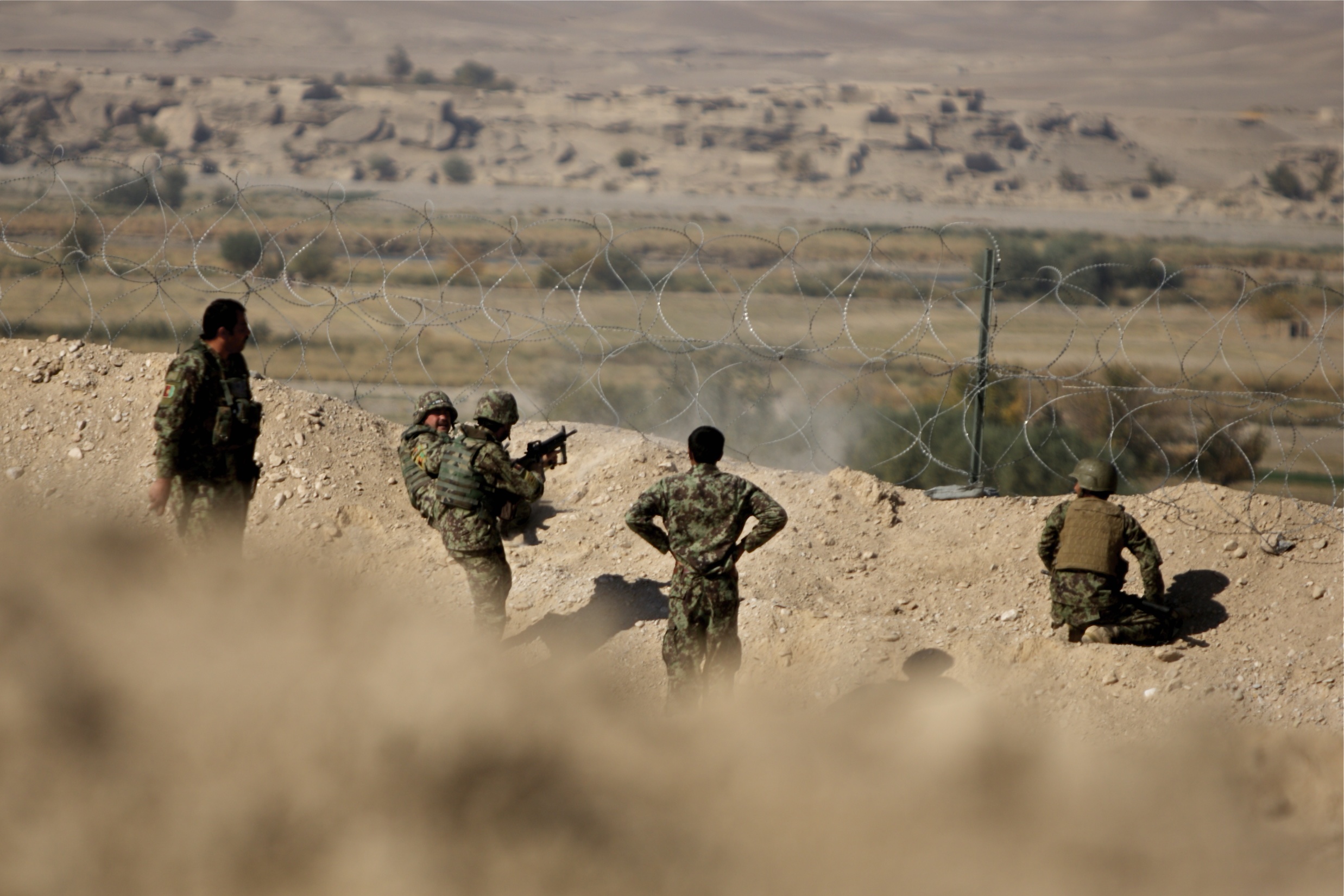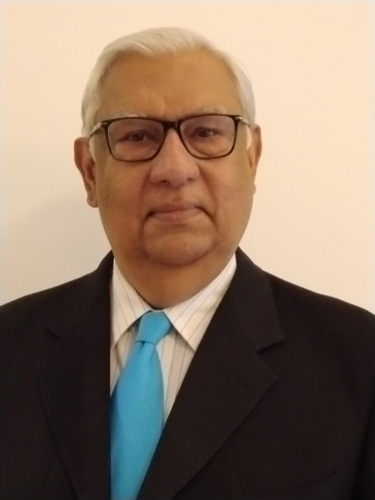The Taliban’s second innings in Afghanistan
The Taliban’s rapid advance and capture of Kabul will surely go down in history as an epic blitzkrieg, leaving the Biden Administration confronting the humiliating comparison with Americans fleeing from Saigon. Lacking the firepower of heavy weaponry like tanks, big artillery and an air force, the Taliban has shown staying power, sending another superpower fleeing from their country. The blame game in Washington is in full flow. President Biden and Secretary of State Blinken are busy fending off a tsunami of criticism. Many Americans are blaming Biden for ignoring advice of military leaders and intelligence agencies but he defiantly stuck to his decision to quit Afghanistan. Building nations is not the job of America, said Biden. The lessons of Iraq and Afghanistan have finally driven this home. This was an astonishing victory for the Taliban, who were themselves surprised at the speed of their advance.
Both Presidents Trump and Biden had compelling domestic political reasons to end what has been called the longest war in American history. Having spent around $2 trillion and sacrificed several thousand American lives, war fatigue had coalesced into widespread public opposition. Biden has blamed President Ghani’s government and the military for lacking the will to fight. The deal worked out in Doha, however, tilted the balance in favour of the Taliban and severely undermined Ghani’s government. The Taliban had agreed not to attack American and other foreign forces but they intensified their attacks on Afghan army units and police.
The Americans knew that a Taliban takeover was inevitable and were only interested in buying time and putting a reasonable gap between their departure and the Taliban takeover to avoid being blamed for whatever happened after their departure. Setting dates for withdrawal gave the Taliban a powerful advantage. This also incentivised its decision to dump agreements when convenient. The media clips showing the chaotic evacuation from Kabul airport and the induction of additional American troops clearly highlights the failure of the planned withdrawal.
The American expectation that the Afghan army would be able to hold off the Taliban long enough for a smooth withdrawal came to naught. The misjudgement about the capabilities of the Afghan army have turned out to be monumental. The Taliban strategy of surrounding Kabul from all sides had left the Afghan government with no option but to capitulate. In several instances, Afghan army units simply surrendered without a fight and handed over their vehicles and weapons to Taliban fighters, though some units of the special forces fought hard. Other factors that tilted the balance in favour of the Taliban were endemic corruption in the Afghan elite, the drawdown of American forces along with personnel, sanctuary, material and ideological support in Pakistan.
American military training for the Afghan army was clearly unsuited for the asymmetrical war. The Taliban succeeded in the age-old Afghan style using bribery, persuasion, tribal connections and making local deals. There was no widespread bloodshed. Afghan warlords like the Hazara leader Ismail Khan and others, who were members of the Northern Alliance, worked out deals with the Taliban to secure their future. They sent messages to Ghani to quit to avoid bloodshed, a claim Ghani has made, justifying his flight from Kabul. Dostum, the Uzbek warlord, took refuge in Uzbekistan. The Taliban has announced the establishment of the Islamic Emirate of Afghanistan. Abdul Ghani Baradar Akhund, a co-founder and deputy of the Taliban leader Mullah Omar, will take over the leadership of the government. Baradar was arrested in Pakistan in 2010 and was imprisoned till 2018. Ironically, the USA got him released and he went to Doha to head the Taliban’s political office.
The Taliban is relying heavily on public messaging in an attempt to soothe all, including India. They have publicly declared that they consider Jammu and Kashmir India’s internal matter and they will not allow Afghan soil for any terrorist activity anywhere. These public pronouncements are no indicators of any intrinsic change of their extreme Islamic philosophy but aimed at achieving international acceptance. In rural Afghanistan, which remains outside media focus, Taliban cadres have gone on a revenge killing spree, imposed strict Sharia practices and banned girls from going to school. In Kabul, female news anchors on TV have been replaced by Taliban anchors. The rollback on the promises has begun as expected. The Taliban leopard is unlikely to change its spots.
It is no secret that countries with adversarial relations with the US, like China, Iran, Russia and Pakistan, wanted the Americans out of their backyard. This new axis of power has kept their Embassies in Kabul open. These countries may recognise the Taliban regime. The Central Asian states like Tajikistan, Turkmenistan and Uzbekistan, which share borders with Afghanistan, are likely to follow the Russian lead. These nations have Islamist insurgencies that may draw inspiration from the Taliban takeover. China has been wooing the Taliban for several years to ensure that they do not support the Uighur militants in Xinjiang. China would be keen to exploit the mineral riches of Afghanistan and integrate it into the CPEC. Pakistan is unable to contain its glee at the Taliban’s success and PM Imran Khan has burst out saying that Afghanistan has finally broken off the shackles of slavery. He has also appealed for international aid for Afghanistan.
American money, which was hitherto funding the economy, will now be cut off and it would be difficult for the Taliban government to function. The Taliban’s major source of funds was based on opium. The drain of skilled Afghans will make it difficult to run a modern government.
For India, the takeover by the Taliban is a setback and the immediate task is clearly the safe evacuation of all Indians stranded there. The medium- and long-term challenge will be to ensure that the Afghan-China-Pakistan axis does not revive their jugalbandi on terrorism. Pakistan’s terrorist organisations and international terror groups like the ISIS, Al Qaida, IS-Khorasan and others are overjoyed and expecting full support from the Taliban government. The overarching strategic impact of the new great game will be a rise in terrorism, which also worries other neighbouring countries. Pakistan has for long helped the Taliban and will now demand payback, which is likely to be directed against India. Will the Taliban now bow to every demand made by Pakistan? India will be watching very closely.
There is one residual challenge for the Taliban emanating from First Vice-President Amrullah Saleh who has announced that as per the Constitution, he has taken over as the new President. He and Ahmed Masoud, son of Ahmad Shah Masoud, have announced that they will fight the Taliban and appealed for Afghans to join the fight. There are many anti-Taliban Afghans who may join the guerrilla resistance movement from Panjshir, the northern province still beyond the control of the Taliban. Can they mount a credible challenge? Only time will tell.
(This was first published in The New Indian Express)



